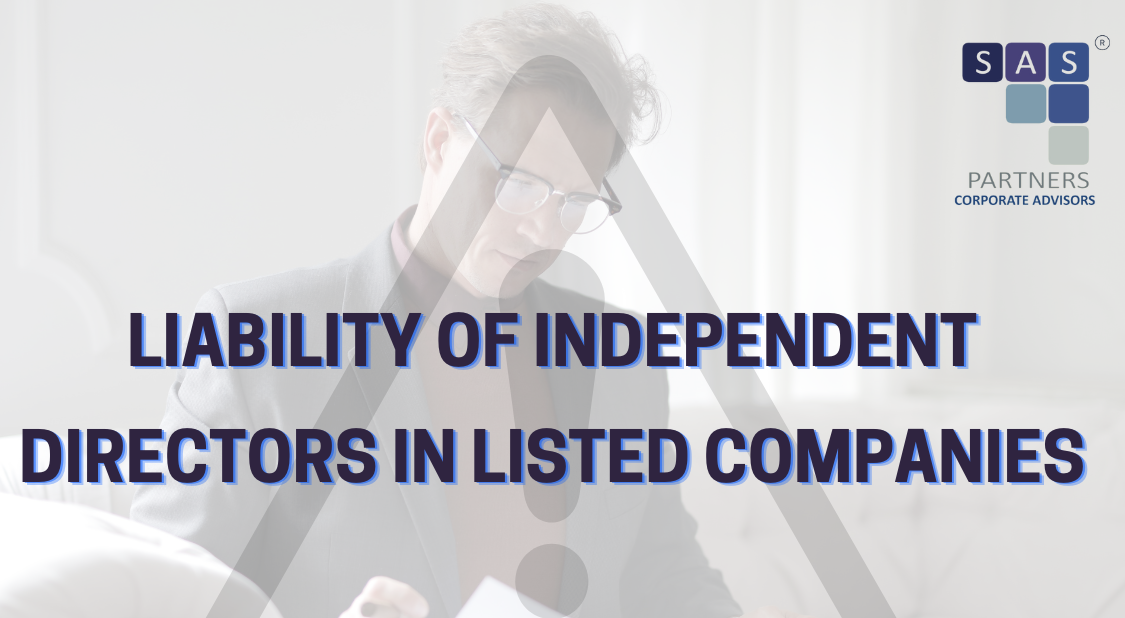
Why SEBI introduced Independent Directors?
The concept of independent directorship as conceptualized and introduced through the Companies Act and by the Securities and Exchange Board of India (SEBI) Regulations, has been seen as a forward move in bringing about globally established corporate governance practices to India.
“The Board of Directors of a company play a key role in providing direction to the management in the areas of strategy and governance and also in ensuring that the company conducts its business in the best interests of all its stakeholders. The presence of independent directors on the boards of public companies is the sine quo non for a strong governance system.” As quouted from “Guidance Note on Independent Directors”.
Though placed as part of the board of a company, the role of independent directors has been precisely defined by the SEBI when it comes to the listed companies, through specifically crafted regulations and obligations. The presence of independent directors has been mandated in meetings where corporate actions are being taken by the companies and they are specifically required to be part of the committees of the Board whereby critical financial and company constitutional matters are being discussed and decided upon.
Further, there are obligations listed for the independent directors under the Listing Obligations and Disclosure Requirements (LODR) Regulations. The Regulations spell out the liability of the Independent Directors as follows:
“An independent director shall be held liable, only in respect of such acts of omission or commission by the listed entity which had occurred with his [/her] knowledge, attributable through processes of the board of directors, and with his [/her] consent or connivance or where he [/she] had not acted diligently with respect to the provisions contained in these regulations.” Read More
The Companies Act also has similar provisions and limits the liability of the independent directors to acts of omission and commission of the company which had occurred with the knowledge of the independent directors with his consent or connivance or where the independent director had not acted diligently.
SEBI penalizes Independent Directors for executive decisions!
However, in a recent order by the SEBI in November 2022, which may be appealed against, the independent directors of the listed company have been penalized in a matter where the listed company booked wrongfully/prematurely booked sales/profits by entering into MOUs with a ‘group’ entity. The independent directors of the company have been considered on par with the directors and cfficials of the company on grounds that they have failed in their duties.
The matter in the case above is specific to how the management structured cross-holdings between companies and managed to avoid such group entities from being tagged as a subsidiary or as an associate company or a related party, though they were controlled, owned or influenced by the listed company.
In this particular case, if we apply the liability clearly put forth by SEBI through the LODR regulations, the matter is such that independent directors would not have had access to the details of such cross holdings and avoidance as the group entity would not have been categorized as a subsidiary or an associate company or a related party. Chances are such that even the board of the listed company would have no knowledge of such transactions as this does not qualify as an item to be placed before the board due to the careful structuring.
Interestingly, in August 2022, the Supreme Court, in a cheque bounce case, pronounced that non-executive directors are not liable for actions that are classified as day-to-day affairs involving executive functions. This being the case, penalizing independent directors for acts that had occurred without their knowledge and not attributable to board process is a deviation from the regulations.
In times when the availability of qualified independent directors is limited, the order may lead to individuals choosing not to take up such directorships leading to structural board issues in companies. The matter if appealed shall bring more clarity for, both, the independent directors and the companies.


